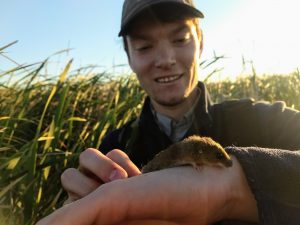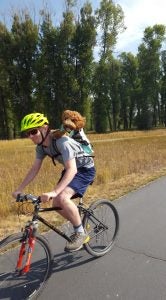 Research Interests:
Research Interests:
I work at the interface of ecology and genetics to inform conservation and management of mammals. My research focuses on populations of conservation concern that occur in specialized habitat conditions, fragmented distributions, or along the species’ range margin. Specifically, I am interested in how landscape conditions create patterns of neutral and adaptive genetic variation, and how intraspecific variation (local adaptation) and interspecific variation (competition) interact to shape species’ distributions. I also look for innovative ways to use genetic data to answer basic questions about population ecology. The goal of my research is to guide adaptive management planning to ensure sensitive populations persist in the face of impending landscape change.

My previous work in the Murdoch and Kilpatrick Labs at the University of
Vermont combined genetic and ecological approaches to estimate genetic structure, habitat quality, and landscape connectivity for special-status American marten (Martes americana) populations in the northeastern United States. I also spent time as a field technician for the Sierra Nevada Carnivore Monitoring Project (USFS) in the southern Sierra Nevada. I obtained my B.S. in Zoology (2014) and M.S. in Wildlife Science (2017) from the University of Vermont. I am an active member of the American Society of Mammalogists Conservation Committee. I spend most of my free time with my dog. Her favorite hobbies include hiking, biking, snowshoeing, and watching hockey.
PhD Research:
In the MECU, I was part of a collaborative team working to promote conservation and recovery of the endangered salt marsh harvest mouse (Reithrodontomys raviventris), a San Francisco Bay endemic. I compared genetic data from historical museum specimens to recently sampled SMHM to quantify potential losses of genetic diversity coinciding with range contractions over the past several decades. I also used genetic data from scat to identify spatiotemporal patterns of dietary variation and partitioning between SMHM and sympatric competitors.
Cody is now a Senior Specialist at the World Wildlife Fund, studying connectivity and wildlife conservation.
